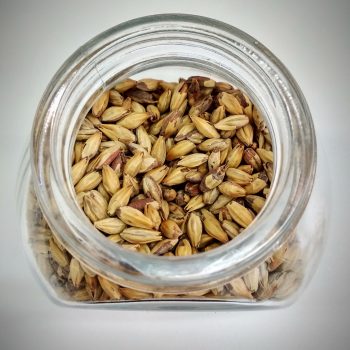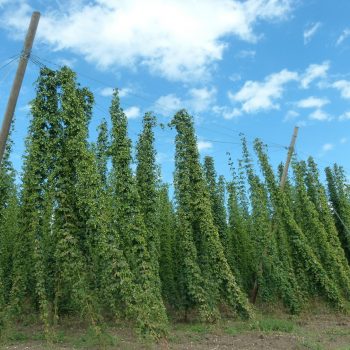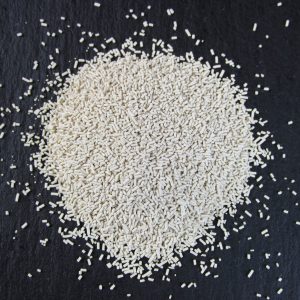Homebrew ingredients for making beer
Ready to brew craft beer at home? You need the right ingredients.
So, you’ve got your beer brewing supplies and your homebrew station is all set up with everything you need. What’s next in your beer brewing journey? You need the right ingredients. If it’s your first time home brewing beer, you will want to start with learning about the basic ingredients of beer before you dive into the beer brewing process.
Whether you want to brew IPA, sour beer, stout beer, craft beer, ale, Belgian beer, pilsner, ale, wheat beer, porter, lager beer or even Mexican beer, read on to learn about hops, malt, and other beer ingredients. Then, once you understand what goes into a great beer, grab a recipe kit and start brewing!
The four key ingredients to brewing your own beer at home
Every variety of beer starts with four simple ingredients: malt, hops, brewing yeast, and water. That’s it!
Malt
Malt is derived from malted barley. It provides sugar that influences alcohol content in beer, and also impacts your beer’s body, colour and flavour. Malt is essential for brewing beer because it provides the sugar, the starch, and the main carbohydrate that the yeast needs feed on. Without malt in your homebrew beer, you would have no carbonation and no alcohol.
The more a malt grain is toasted, the darker the beer it will produce. Pale malts will produce pale ales, while amber ales get their earthy colour from mid-toasted malts and dark beers like stout and porter are made with dark malts that have been roasted at a high temperature.
These darker malts are also sweeter because the longer the grains are toasted, the more starches are converted into sugars, creating a sweeter malt.
Higher malt content in your home-brewed beer will create a higher alcohol content. This is because yeast converts sugar into alcohol, so your hight-sugar malt will be converted into a higher alcohol beer.


Hops
Hops come from the flower of a plant in the hemp family. These prolific climbing hops plants can grow to over five metres high. When they are boiled, hops flowers release a sticky substance called lupulin, which has bitter acids, resins, and essential oils. These compounds give the beer bitterness and spice to balanced the sweet flavour of the malt. Hops also produce that delicious aroma that we all love and add character unique to each brew.
Hops are also a natural preservative. They extend the life of your homebrew and allow your beer to age safely.
Using a variety of hops in your beer will create different flavours. There is more than 100 varieties to choose from. You can use hops to add floral, fruity, citrus or pine overtones to your homebrew beer. You can combine different hops to create entirely new flavour profiles! Hops really allow you to experiment and make new flavours for your homebrew. If you add your hops early in the homebrew process, you will add more bitterness to your beer. If you add your hops later in the homebrew process, you will give your beer more aromatics.
Brewing yeast
The homebrew beer fermentation process depends on brewing yeast. Brewing yeast turns the wort into beer. It can also have a big impact on the beer’s flavour and style.
For example, there are two types of brewing yeast, and they are classed according to whether they cause fermentation to take place near the top or the bottom of the fermenter.
Beer yeast that works at the top of the fermenter tends to prefer warmer temperatures. This beer yeast is known as ale yeast, and this type of yeast includes Bavarian wheat beer yeast. Beer yeast that works at bottom of the fermenter is called lager yeast. Lager beer yeast prefers colder temperatures.
Earlier than mid-1800s, nearly every beer was brewed using ale yeast. In later years, clear lager beers like lovely golden pilsners were invented and became very popular. This launched the popularity of lager yeast, which is now the most used beer yeast across the world.


Water
Last but not least, the simplest ingredient of all: water! When you are going to brew your own beer, make sure you use good quality, clean, filtered water for your homebrew.
And that’s it! Those are the four simple ingredients you’ll need to start brewing your own beer. The homebrewing journey is exciting, but you really only need four ingredients and some basic equipment to get going.
To learn more about the brewing supplies you’ll need to make your own beer, visit our beer brewing supplies page. To learn more about how to actually brew your beer, check out our recipes page. For more in depth info on beer ingredients, check out our blog. And to get started with some basic beginner information, visit our getting started page.
